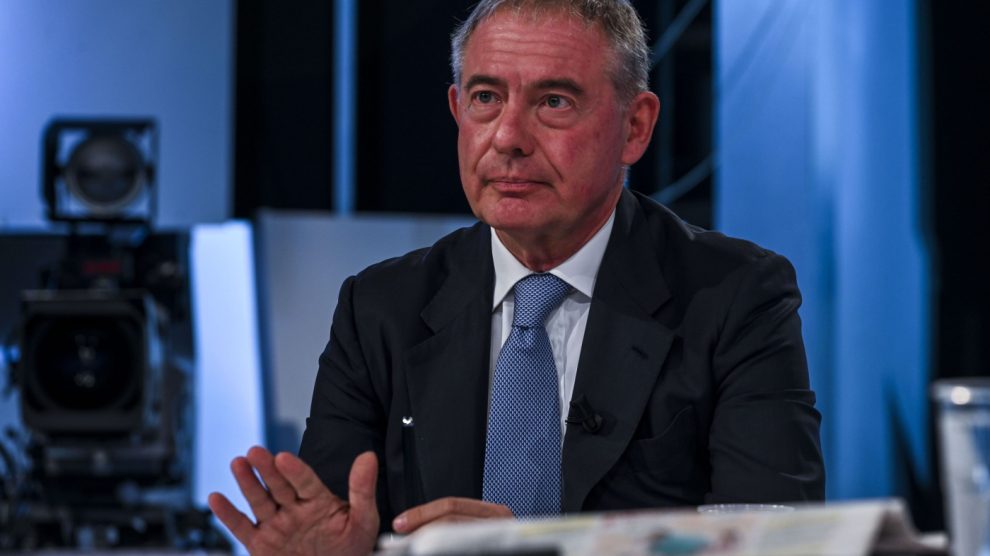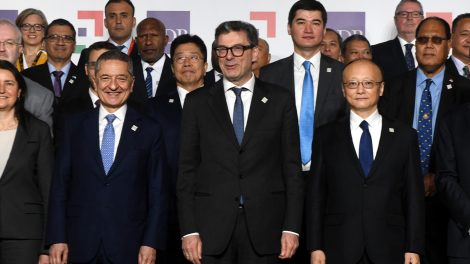The defence of technological sovereignty against acquisitions by Russia and China will be the industrial policy mission of Adolfo Urso, recently appointed Minister of Enterprise and Made in Italy (previously the Ministry of Economic Development).
- As former chairman of Parliament’s Intelligence Committee, Mr Urso has been very insistent on defending Italy’s technological sovereignty against takeovers by Russia and China.
- A member of Brothers of Italy (the party led by Prime Minister Giorgia Meloni) for the last seven years, Mr Urso had previously worked at the Ministry of Economic Development. In 2001 he headed Foreign Trade, which was a subsection.
- In short, he’s been dabbling in these issues for quite some time – and always stressed the importance of national security as a key in the economy.
Reshore, reshore, reshore (and friend-shore). Interviewed by La Stampa after being appointed minister, he noted that “the problem of technological sovereignty has been arising with increasing force in recent years, and has literally exploded with Russia’s invasion of Ukraine.”
- It is an Italian problem as well as a European problem, he said, highlighting the need to reshore “crucial productions” back in the European continent “when the economy of scale does not allow for a national solution.”
- He cited microchips “that are only made in Taiwan, drones, but also electric batteries for the cars of the future, or solar panels” as examples.
- “The ecological transition from fossil fuels to renewables cannot and must not mean that Europe goes from a dependence on Russian gas to a new dependence on Chinese technologies.”
- PM Meloni reiterated this concept on Wednesday evening while speaking at the Senate.
- To bring back production chains, “we must attract capital from abroad. I am thinking above all of those strategic productions mentioned above. But always remaining within a Western perimeter.”
Foreign investment control (and much more). Italy’s “Golden Power” – i.e. the State’s ability to veto or condition a deal to protect its strategic assets – is “a tool that our partners such as the US, France or Germany also have, one that is fully compatible with European legislation,” said Minister Urso to La Stampa.
- The former PM has used it extensively, stepping up Rome’s moves to protect its companies from authoritarian-minded hands. In one instance, it barred Beijing from acquiring an agro-tech company, recalled Mr Urso, who said he is “fully in the groove of Mario Draghi, who does not strike me as a dangerous protectionist.”
- The number of flagged operations increased dramatically in the last two years, partly thanks to Mr Draghi’s reform, which extended the reach of Rome’s special powers.
- Over the past four years Mr Urso spent as the Intel Committee and the opposition desks, Brothers of Italy “contributed responsibly to extending the scope of the Golden Power, which was born in the field of defence technology and then progressively extended to telecommunications, finance, banking, pharmaceuticals, and even agri-food,” he noted.
Supporting businesses. “We are approaching a terrible economical situation. We are on the eve of a recession. These are gloomy forecasts that we must absolutely disprove by focussing our activity on supporting businesses,” noted the new Business Minister.
- He added he wishes for his “ministry of crises” – which usually deals with industrial emergencies – to become a “ministry of industrial opportunities.” One key instrument: refinancing the de-fiscalisation tool for those who take over companies in difficulty.
Urso’s road to relaunching the economy, as he told Il Corriere della Sera, involves:
- guaranteeing energy and raw materials at sustainable costs, or the system will blow up, so we need to make it cheaper to produce;
- “cut the tax wedge, to the benefit of companies and workers;
- accompany foreign investment in the critical points of our supply chains, in the chip sector as in the electric battery sector.
Stronger together (within the EU). “I believe it is useful to build equal partnerships with other major European nations wherever possible,” added Mr Urso, indicating STM, an Italo-French chipmaker, as a successful model. “We can do better in other fields to ensure effective equality in the logic of win-win partnerships. On the same level, we must move with Berlin in the awareness of how integrated our industrial supply chains are, aiming to build European champions.”




